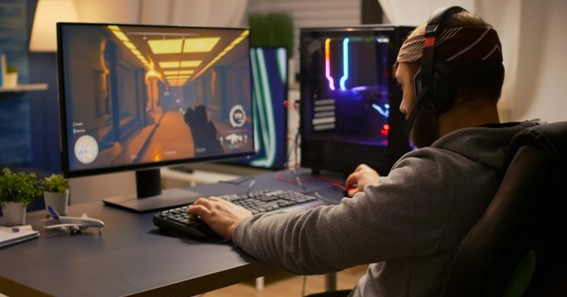Nowadays, there are many reasons to start your own game development company and launch the first project. The industry is evolving so fast that you may merely want to grab a bite of the market share. So the best option can be not to do everything using your in-house resources only. In this post, we’ll explain why it’s beneficial to find a reliable game development company and share the workload with it.
Be sure to get familiar with all the reasons and benefits why it’s the right decision so that you could be able to start your game project without too much of a hassle. Read on and gain more insight into how professional game developers release their products!
Why Outsource Game Development?
Outsourcing game development brings you a lot of benefits that will positively affect the budget allocated for the project. Unlike developing a game using your in-house resources exclusively, referring to professionals helps you save time, costs, and effort. Why so? Simply because it’s all about the distribution of roles and tasks as well as an optimal resource allocation that enables you to get the best result within a reasonable amount of time.
Imagine that you start developing a game on your own. Let’s say you have a team of 2 developers, 1 game designer, 2 artists, and 2 QA specialists. Aside from keeping it satisfied, you need to arrange a proper workspace for your workforce, including professional hardware and software, which is often quite expensive, let alone that you have to pay monthly wages. All these expenses can be cut down significantly, given the right approach.
Click here – How To Get Blood Out Of Clothes Fast
To sum up, outsourcing game development allows you to:
- optimize resource spending, saving costs and time;
- obtain more space and freedom to focus on what’s really essential for your business;
- release your game successfully and on time;
- ensure the high quality of your final product;
- reduce risks.
What Preliminary Measures to Take Before Project Launch?
First and foremost, come up with a clear idea of what your future game needs to be. Will it be a mobile or console game? Action RPG or RTS? Beyond question, you can outsource all game development life cycles, from concepts and references collection to testing and release. But it’s still recommended that you at least have a general idea of gameplay mechanics, style, genre, and scope before you address a game development studio.
Secondly, calculate your budget and estimate the expenses in order to shed more light on such fundamental aspects of your game project as its duration, deadline, cooperation model, and the rest. This approach will undoubtedly help you save costs and time long before you even start to develop the game itself. Planning is everything. Given a coherently concocted plan that outlines each step beforehand, your team will help you cut the risks of failure.
Thirdly, research the market and review competitors in the context of the discovery phase. You can carry out this analysis on your own or address a game development outsourcing company that will take this responsibility. Both ways are good. Everything depends on your budget and time. Nevertheless, it might be more beneficial to rely on an experienced studio.
Click here – Is pet insurance worth it ?
How to Find a Game Developer that Fits Your Project?
When you’ve completed the preliminary phase, you can freely go ahead and search for the best candidate to take on your game project. What are the tips and hints here?
- Google using proper keywords. Try typing in phrases like “game development company,” “full-cycle game development services,” and the rest in order to see how much effort each candidate spends to be ranked top 5 by Google. Without a doubt, this isn’t a panacea, but you can start using this tip.
- Pay attention to experience. The formula is simple — the more time a certain game development studio operates in the industry, the more professionally it does its job.
- Consider portfolios. Visit the official websites of potential candidates and review their portfolios. How many games has it finished? What styles and genres the studio prefers to work with? Try to answer the question of whether this company fits your upcoming game project.
Finally, be ready to initiate communication and discuss everything you are interested in, asking questions that are of utmost importance to your understanding of the candidate’s game development principles as well as workflows. Taking advantage of this approach will help you get the result you expect within the optimal time frame.

